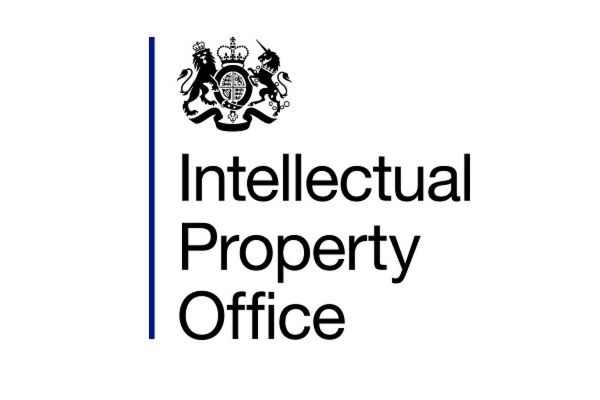Objections to WIPO Madrid Protocol applications designating the UK
The Madrid Protocol is a system for helping trade mark owners protect their trade marks in several countries at one time, more easily, more cheaply and more conveniently. It is established under a treaty and run by the World Intellectual Property Office (WIPO) in Geneva, and it provides a single registration designating up to around 100 countries of your choice, with the same legal effectiveness as directly filed trade mark applications.
The UK IPO has 18 months to examine UK designations filed via WIPO/Madrid and usually will examine much quicker than this, but not as quickly as a directly filed national application, where examination can take place within 2 days of the UK application being filed. There is usually 2 months to reply to the letter and dates should be carefully checked.
Click here for more information on International trade mark protection in many countries using the Madrid Protocol.
If an objection arises in one of the designated countries, it does not impact on the other designated countries. The examination in each country is separate and refusal in one country will not mean that the other designated states are also refused.
James Cornish, Head of Trade Marks and Brand Protection at Page White Farrer, is experienced in handling UK objections under the Madrid Protocol and shares some tips for attorneys and applicants when dealing with objections at the UKIPO.
Common objections in the UK
The UK Intellectual Property Office may refuse a trade mark application on the grounds that it:
- is devoid of any distinctive character. Distinctiveness is assessed from a UK perspective, having regard to the languages of the UK, trade use, the relevant consumers and the relevant goods;
- consists exclusively of signs or indications which may serve in trade to designate characteristics of goods or services; and/ or
- consists exclusively of signs or indications which have become customary in the current language, or in the bona fide and established practice of the trade. For example, basic geometric shapes, promotional wording and known industry terms.
How can such objections be overcome?
- Written submissions can be filed to argue that an objection is incorrect.
- It may be possible to amend the application, so that it covers goods for which the objection is not appropriate. For example, if the mark no longer describes characteristics of the remaining goods.
- Evidence can be filed to show that a mark has acquired a distinctive character through use. For example, by providing dated adverts and invoices.
- Evidence can be filed to show that the mark can function as a trade mark when in use. For example, in brochures.
- Hearings can be requested with senior IPO officers.
- Appeals can be filed to the High Court or to the “Appointed Person”.
Oppositions to WIPO UK designations
Oppositions can be filed to WIPO UK designations, as they can to UK national applications, within the two month opposition period. The UK IPO will:
- give notice of the opposition to WIPO, who then sends the details to the holder of the WIPO registration;
- send a letter directly to the address details at WIPO, confirming that a Defence is needed and a valid UK address for service to contest the opposition beyond the initial filing of a TM8 Defence.
The International registration holder needs to file a completed TM8 Defence and counterstatement within the two month period, unless the parties agree an extended period by mutual consent. If no Defence is filed, even if a valid UK address for service is appointed, the UK designation is treated as withdrawn.
If the international registration holder files a TM8 Defence and counterstatement, but no UK address for service is appointed, the UK IPO will send directions to the address at the WIPO Registry, requiring a valid UK address for service within a one month period and if no UK address for service is provided, the application is treated as withdrawn.
The WIPO UK designation can then be defended by the usual optional steps of evidence, Hearings, and written legal submissions.
Some additional reasons for UKIPO registry objections
Other objections which we come across regularly include:
- lists of goods will be refused if they are unclear, goods are in the incorrect class, or are too vague. For example, the words machines, retailing, electrical apparatus, paper goods and the class 45 Nice heading would be too vague and need to be clarified.
- where a mark is contrary to public policy or accepted principles of morality. For example, if it encourages illegal activities. Written arguments and possibly limitations to the list of goods may deal with such issues.
- if the mark may deceive the public as to quality, nature or geographical origin. For example, it suggests the goods contain gold. Written arguments and possibly limitations to the list of goods may deal with such issues.
- if an application has been filed in bad faith. For example, wide lists of goods or using the names or pictures of famous individuals or buildings. Written permission from the famous individual can deal with certain objections.
- where a trade mark consists exclusively of a shape resulting from the nature of the goods themselves, or which is necessary to obtain a technical result, or which gives substantial value to the goods. For example, a football, a plug socket, or jewellery. Written arguments may deal with such issues.
- the use of certain trade marks is prohibited under UK law. For example, national flags, national emblems and Royal emblems. Written arguments may deal with certain issues, for example to deny that crown images are British Royal Crowns protected by the law.
UK IPO search 'citations'
The UK IPO does not refuse WIPO UK marks if there are earlier similar marks on the UK Register. They do a search for information purposes and notify the holders of the earlier rights of the WIPO UK application at publication.
We advise a careful review of these earlier marks, and it is often a good idea to try and persuade the examiner not to notify and/or limit the list of goods so the examiner is less likely to notify, or other company is less inclined to oppose. This can avoid opposition costs.
How we can help
If you have received an objection to a WIPO trade mark application at the UK IPO, we can help you to assess the strength of your case and determine the best course of action.
Contact our trade mark attorneys via our enquiry form, and we can discuss your situation.
This briefing is for general information purposes only and should not be used as a substitute for legal advice relating to your particular circumstances. We can discuss specific issues and facts on an individual basis. Please note that the law may have changed since the day this was first published in March 2024.




